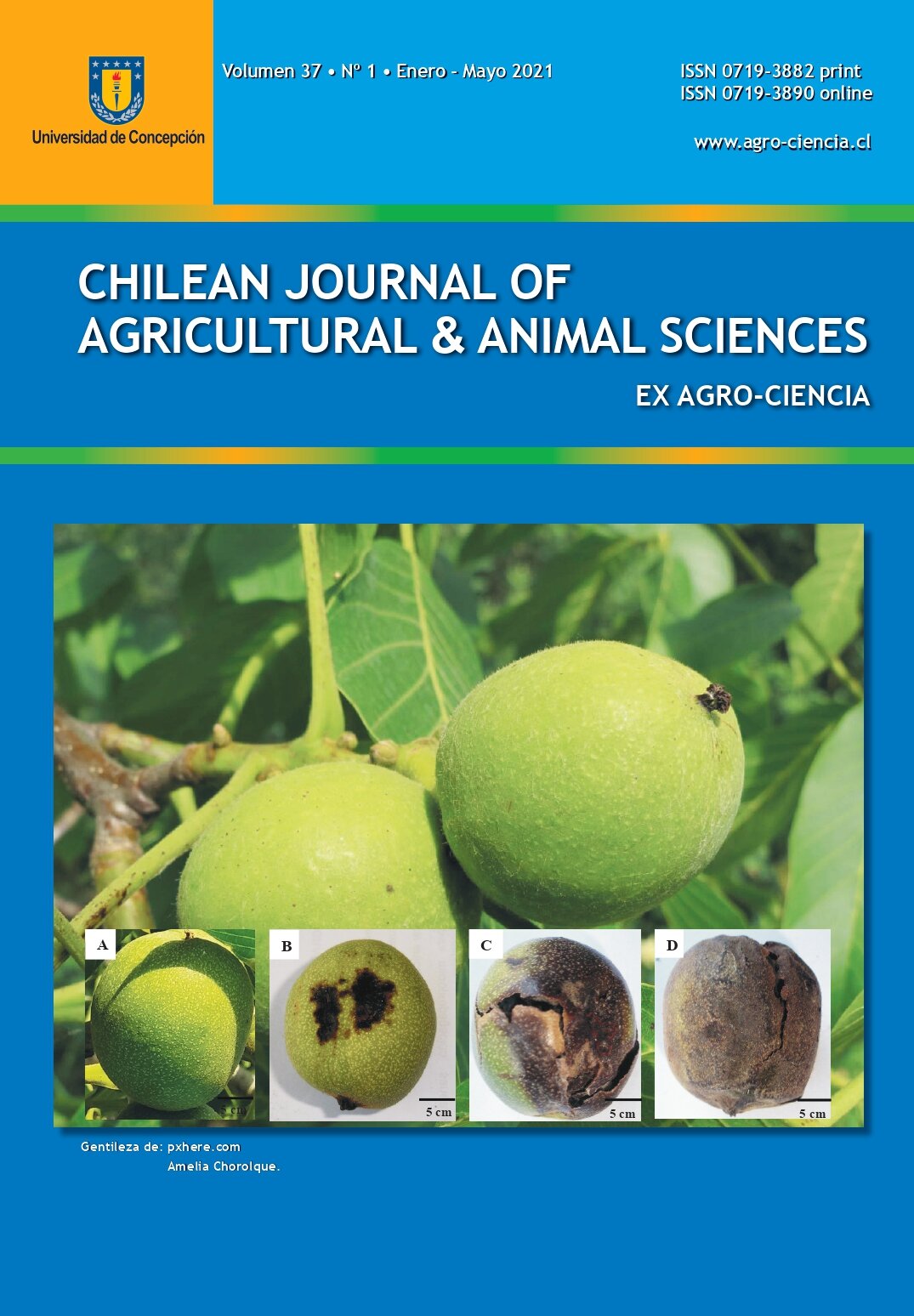PHYTOHORMONES REDUCE DAMAGE BY Nacobbus aberrans IN TOMATO (Solanum lycopersicum L.)
Susana B. Martínez1*, Mariana Garbi1, Lucrecia Puig1, Guillermo B. Cap2, Daniel O. Gimenez3
ABSTRACT
There is evidence that indicates that elicitors reduce damage caused by nematodes. Elicitors are compounds that stimulate plant defense promoting secondary metabolism. The aims of this study were to evaluate the soil and previous root crop nematofauna in tomato ‘Elpida’, and determine the effect on yield and root damage by Nacobbus aberrrans. Soil drench applications were conducted 24 hours pre-transplanting with 1 mL of: salicilic acid 0.50 x 10-4 M and 1.00 x 10-4 M, ethylen 0.35 x 10-3 M and 0.70 x 10-3 M, jasmonic acid 1.00 x 10-4 M and 1.00 x 10-5 M, including untreated plants as control. In the soil, saprophytic, omnivorous and predatory nematodes, as well as Helicotylenchus spp. and N. aberrans, were identified. The previous crop was ungrafted ‘Elpida’ plants and also grafted on Maxifort, 9184, Multifort and Beaufort. Eggs and N. aberrans J2 were identified in all roots, with significantly lower amounts in Maxifort and 9184. Phytohormones increased the production of fruits with weight higher than 150 g and total yield compared to the control, producing lower galls, galling and reproductive indexes. Salicylic acid 1.00 x 10-4 M produced lower damage to the roots and a higher total yield and truss yield, followed by ethylene 0.70 x 10-3 M and jasmonic acid 1.00 x 10-5 M treatments. Further research is required to provide deeper knowledge of the practical implications of using elicitors and enhance the understanding of their action for N. aberrans control.
Key words: elicitors, systemic resistance, salicylic acid, ethylene, jasmonic acid.
1 Facultad de Ciencias Agrarias y Forestales (FCAyF), Universidad Nacional de La Plata (UNLP). Calle 60 s/n, 1900 La Plata, Buenos Aires, Argentina.
2 Instituto Nacional de Tecnología Agropecuaria (INTA), Chacra Experimental Gorina, Calles 501 y 149, 1896 Joaquín Gorina, Buenos Aires, Argentina.
3 Instituto de Fisiología Vegetal, UNLP, FCAyF–Facultad de Ciencias Naturales y Museo-Consejo Nacional de Investigaciones Científicas y Técnicas (CONICET), Diagonal 113 s/n, 1900 La Plata, Buenos Aires, Argentina.
* Autor para correspondencia E-mail: [email protected]


